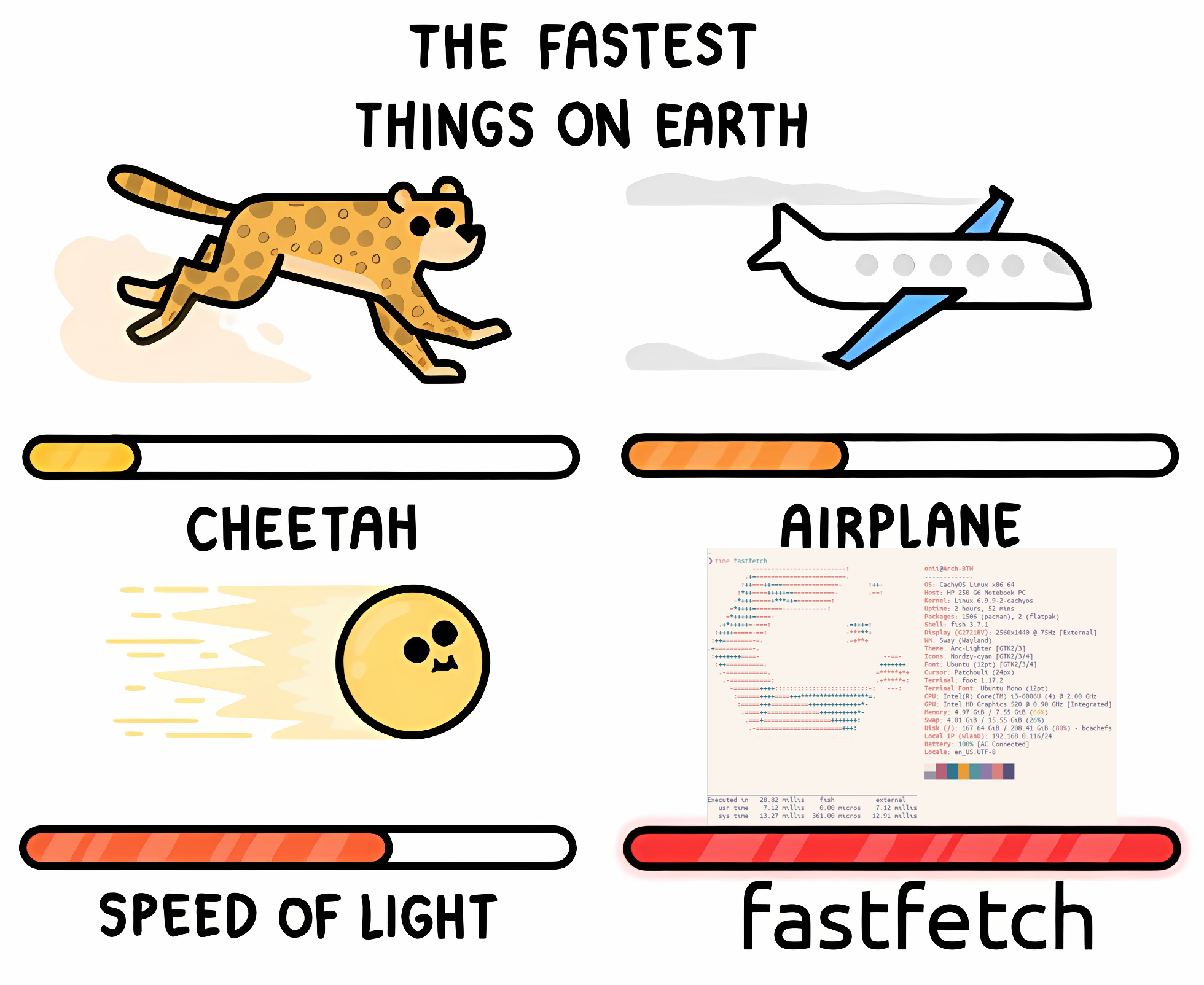this post was submitted on 14 Jul 2024
487 points (96.9% liked)
linuxmemes
24389 readers
434 users here now
Hint: :q!
Sister communities:
Community rules (click to expand)
1. Follow the site-wide rules
- Instance-wide TOS: https://legal.lemmy.world/tos/
- Lemmy code of conduct: https://join-lemmy.org/docs/code_of_conduct.html
2. Be civil
3. Post Linux-related content
sudo in Windows.4. No recent reposts
5. 🇬🇧 Language/язык/Sprache
6. (NEW!) Regarding public figures
We all have our opinions, and certain public figures can be divisive. Keep in mind that this is a community for memes and light-hearted fun, not for airing grievances or leveling accusations.Please report posts and comments that break these rules!
Important: never execute code or follow advice that you don't understand or can't verify, especially here. The word of the day is credibility. This is a meme community -- even the most helpful comments might just be shitposts that can damage your system. Be aware, be smart, don't remove France.
founded 2 years ago
MODERATORS
you are viewing a single comment's thread
view the rest of the comments
view the rest of the comments

Java is certainly the fastest of the bunch, but I still find it rather noticeable how long the startup of applications takes and how it always feels a bit laggy when used for graphical stuff.
Certainly possible to ignore that on a rational level, but that's why I'm talking about how it feels.
I'm guessing, this has to do with just the basic UX principle of giving the user feedback. If I click a button, I want feedback that my click was accepted and when the triggered action completed. The sooner those happen, the more confident I feel about my input and the better everything feels.
I've never experienced that. Also Android is OpenJDK based and the applications in Android work well and the system is well optimized
Yep, I also don't fully agree on that one. I'm typing this on a degoogled Android phone with quite a bit stronger hardware than the iPhone SE that my workplace provides, e.g. octacore rather than hexacore, 8GB vs. 3GB RAM.
And yet, you guessed it, my Android phone feels quite a bit laggier. Scrolling on the screen has a noticeable delay. Typing on the touchscreen doesn't feel great on the iPhone either, because the screen is tiny, but at least it doesn't feel like I'm typing via SSH.
That has to be because the code is better optimized for the hardware in case of iPhone and less so which language it was written in.
Why? I certainly expect that to be a factor, but I've gone through several generations of Android devices and I have never seen it without the GC-typical micro-stutters.
I've never experienced that and I am running a several year old phone
I have experienced the delayed scrolling, mostly on cheaper phones.
But that's mostly because i'm used to phones having 120+hz screens now, going back to a 60hz screen does feel a bit sluggish, which is especially noticeable on a phone where you're physically touching the thing. I think it might also have something to do with the cheaper touch matrixes, which may have a lower polling rate as well.